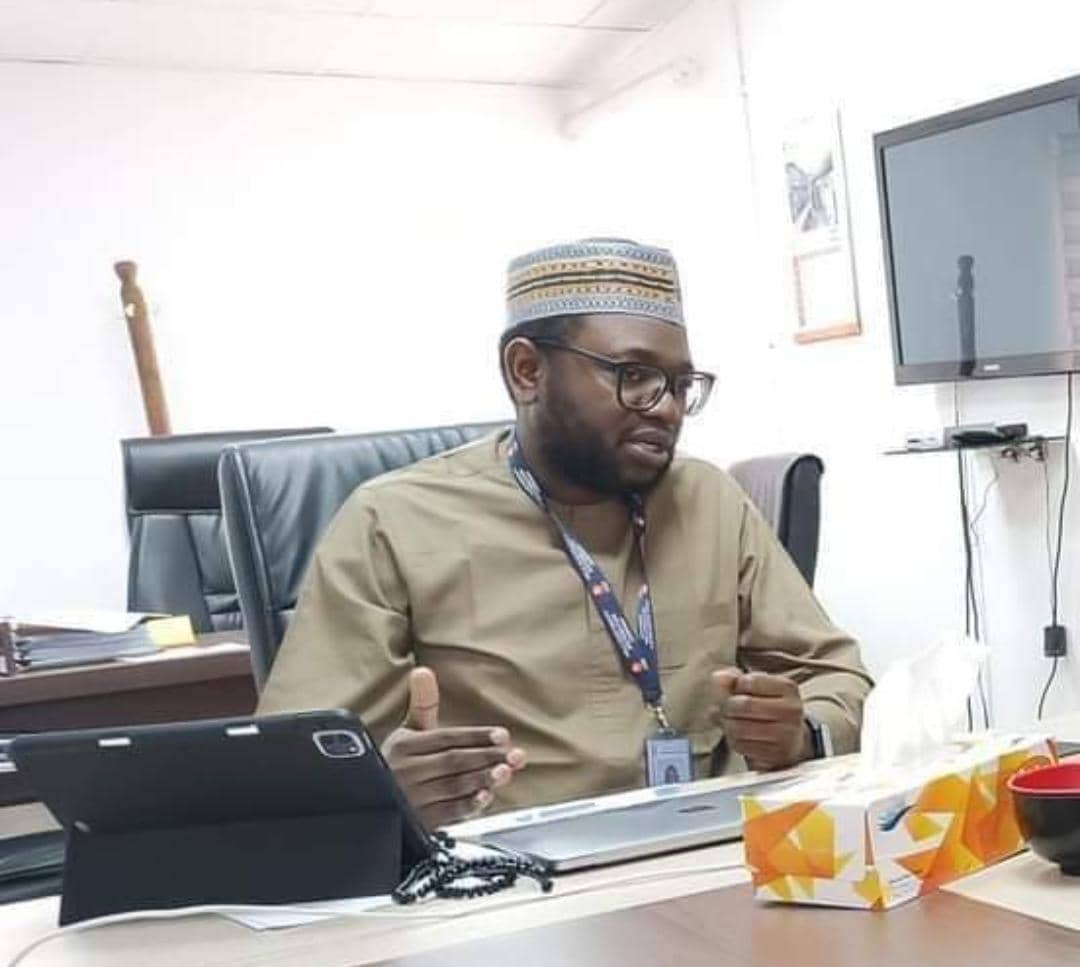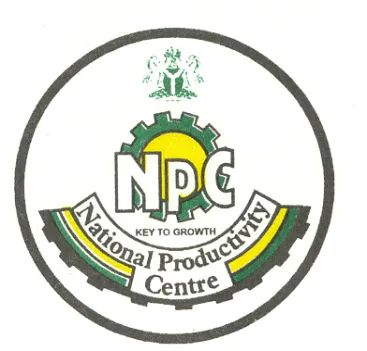An American inventor who was among the first inventors to apply the principles of organized science and teamwork to the process of invention, Thomas A Edison once said ‘Unfortunately, there seems to be far more opportunity out there than ability….We should remember that good fortune often happens when opportunity meets preparations”. – In the last two decades, Dr. Umar Abubakar Hashidu have acquired relevant and sufficient experiences that turnout to be a journey or preparations for a designated destiny.
Before highlighting academic achievements and experiences acquired by Dr. Umar Abubakar Hashidu, it is good for the reader to know that the gentleman was born in the mid-1980s, in the family of late. Alhaji Abubakar Habu Hashidu, the first Executive Governor of Gombe State.
Umar is a trained System Engineer from the School of Engineering of the renowned University of Warwick, United Kingdom. He later acquired Masters of Science (Msc.) from same institution in the field of International Technology Management. In 2007, Umar went out of his way promoting teaching and inspiring high school students in the field of science, technology, engineering and mathematics (STEM) through the Warwick in Africa Project at the University of Witwatersrand, South Africa. After postgraduate studies, Umar teaches in Warwick, introducing undergraduate students to innovation in high tech firms, international perspectives of entrepreneurship and trends of managing successful business venture. Dr. Umar acquired Doctor of Philosophy (PhD) in Management with expertise in strategy, policy, organizational design and development from his alma mater.
After returning to Nigeria, the UK trained engineer and manager was a Director of Strategy and Business Development with SIGNTURA OUTSOURCE (Nigeria) from 2011 to 2014. As a Director, he led due diligence analysis, bids and report formulation for strategic management with clients – leading to business expansion with a monthly turnover of over a $1 million. In 2014, Umar was first recruited as a consultant to serve as the Decision Support Executive to the Managing Director (MD) of Kano Electricity Distribution Company, a position he held for 6 month before the Company offered him a full time role as Head of Strategy and Corporate Performance to strengthen the management team in developing organizational strategic focus and performance evaluation. As head of strategy, Umar developed the company’s strategic plan in line with BPE’s approved acquisition plan with a designated implementation plan in conformity to grid, distribution, metering and codes.
In 2016 Umar Co-chaired the restructuring of the company resulting to improved revenue collection by 150% and improved power intake from the national grid by 110%. He also served as a Project manager to a $2 billion proposed investment for the Energy Company of the Future (ECOF) project alongside Shell Foundation (UK), Massachusetts Institute of Technology (MIT), Industry Capital (USA) toward integrated value utility combining off-grid and on-grid with deep customer relationship to foster affordable, sustainable and reliable power. Within a span of five years he was able to execute and accomplished different task ranging from designing policy, guidelines and procedure, leading negotiations, coordinating budgeting, monitoring and evaluation, and most notably was interfacing with the office of Nigeria’s Vice President in the MDA debt resolution, resulting in over N1.6 billion Naira of invoice verified and to be written off by NBET.
Joining numerous Nigerians toward participating in the Buhari and APC administration’s agenda of improving domestic production and boosting Nigeria’s Agro-Tech business explorations, In 2019 Umar joined a Nigerian emerging Conglomerate – NICE CORPORATE SERVICES. As Head, Planning and Strategy, he Led due diligence and analysis of a proposed $200 million sugar refinery to be built in Argungu, Kebbi State. Prior to this, he developed the business plan for a venture into the textile industry, an integrated Plant that encompasses ginning, spinning, weaving and finishing Plant worth $40 million. In the same year, Dr. Umar founded CORBRIDGE Nigeria Limited, a management firm focusing on strategic consultancy in the power sector with emphasis on power distribution, generation and renewable energy.
From 2019 to 2020, Umar served as a consultant to World Bank Group – A consultant for the World Bank Energy and Extractive team working in support of the performance based loan towards the actualization of Power Sector Recovery Programme (PSRP) in Nigeria. Interfacing with BPE and other stakeholders he also contributed to the development of DLIs related to improving the governance of DisCos, this includes external accountability and transparency, relationships between boards and management, procurement procedure for investment within the scope of PIP, all as a consultant.
Umar also served as a Consultant/Technical Assistant, United Kingdom Nigeria Infrastructure Fund (UKNIAF), from 2020 to 2021 he was a consultant for the Presidential Steering Committee on Power working with the Vice President, SSA Infrastructure and CBN Governor to reposition the power sector and turn it around. His roles involve coordinating the National Mass Metering Project Monitoring and Evaluation, Assessing the effectiveness of the Power Consumer Assistance Fund as an effective Subsidy regime, recommending innovative business models to distribution companies and assessing contribution of the state Governments for the CAPEX of DisCos.
Dr. Umar has several professional development and membership, Finance for Non-finance Directors from Institute of Directors (UK), Certificate in Building and Leading Organization from FTTC Nigeria, a registered Engineer with COREN and member of Nigerian Society of Engineers, member Institute of Engineering and Technology UK, Member Institute of Civil Engineers UK, Member Institute of Mechanical Engineers UK, Fellow Institute of Management Consultants Nigeria.
Having gathered numerous certifications, memberships and vast experiences, in 2021 Dr. Umar became the Managing Director/ Chief Executive officer of Quest Electricity Nigeria Limited (QENL). While piloting the affairs of the company and giving strategic direction he led due diligence and acquisition of 60% of the core assets of Yola Electricity Distribution Company from BPE – Closing a N19 billion Naira transaction as well as a successful handing over process from BPE to the new management of YEDC.
Leading a company that its first operator pulled out over revenue loss can never be an easy task – but with his accumulated knowledge, skills and experiences resulting from participation in shaping numerous complex task in companies, projects and conglomerates Dr. Umar was able to give life again to Yola Electricity Distribution Company. Within 12 months of leading YEDC Dr. Umar improved collection from an average of N650 Million to Over N1.3billion, he later improved the balance sheet of the company from N4 billion to N9 billion and on course for profit before tax of over N8 billion, reducing the ATC&C losses from 80% to 60% below the regulatory target, and metering over 35,000 customers in 6 months – the new MD/CEO was able to accomplished 100% compliance with Forum Office rulings.
Above is synopsis of a designated destiny – Dr. Umar worked tirelessly to distinguished himself in the aspect of strategy and management through trait of sincere and steadfast fixity of purpose. Only through determination, firmness and willpower an individual can lift a sinking company back to competition. A company that requires critical customer engagement and stakeholder participation in governance can only be managed by an individual like Dr. Umar who has enough fervor to accomplish bigger things.
For Dr. Umar to be able to raised the profile of Yola Electricity Distribution Company (YEDC) within this short period – it tells how deeply he have understood the complexity and problems associated with Nigerian North-East region, especially looking at his states of operations – Adamawa, Borno, Taraba and Yobe are the most ravaged that suffered the devastating effect of insurgency. Dr. Umar was able to create synergy between the affected communities and the company’s core values in ensuring a smooth relationship such that the people were able to cooperate through increase payment of tariffs and rise in revenue collection by the company.
Sifting through Dr. Umar’s experiences and accomplishments one must commend President Muhammadu Buhari for nominating him to lead the affairs of the North East Development Commission for the next five years. Apart from his sense of youthful exuberance and accomplishment, the nomination of Dr. Umar as new MD and the collective composition of the new board’s received a collective applaud from ordinary Nigerians, especially youth from the North Eastern Nigeria – the cheering it’s all over, which indicates approval by primary constituents.
As we await the Senate confirmation through their expeditious consideration, we believe the North-East Development Commission will again be in good hands and will continue to foster toward actualizing its mandate.”
May Allah the Almighty see us through.Copied from Engr Dr UmarAbubakar Habu Hashidu current MD/Chief Executive North East Development Commission.










